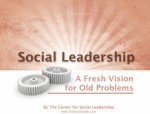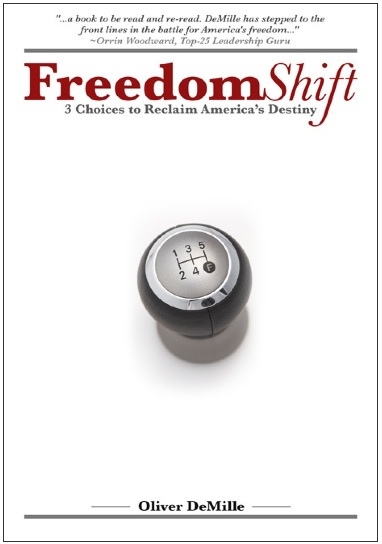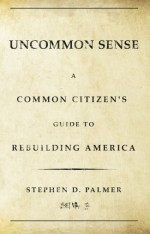Monthly Newsletter: The Great Recession is Just the Beginning by Oliver DeMille
Published: Sat, 01/01/11
 "Empowering Ordinary Citizens to Make an Extraordinary Difference"
|
|
The Great Recession is Just the Beginning
A review of Aftershock:
The Next Economy and America's Future by
Robert B. Reich
and Aftershock: Protect
Yourself and Profit in the Next Financial Global Meltdown
by David Wiedemer, Robert Wiedemer, and Cindy Spitzer.
IN THE AFTERMATH OF THE 2008-2009 economic meltdown, the
experts are now arguing about what's ahead.
There are two major types of such
commentary. The first could be called the "Everything Will Be Fine If You Just
Elect Us" group, which includes leading Democrats and Republicans.
The second
group might be called the "Coming Aftershocks" school of thought because it
predicts that the Great Recession was just the beginning of a new economic
reality.
The Aftershock crowd is more convincing, frankly, despite its
somewhat pessimistic perspective. It is based on reason, trends and research,
rather than constant appeals to the very experts and authorities who predicted
that no meltdown would come.
Three leading proponents of this view are 1) Harry S. Dent,
2) Robert B. Reich, and 3) the trio of Wiedemer, Wiedemer, and Spitzer.
I have
already reviewed Dent's work, so I will focus here on the latter two books.
Their message is sobering and perhaps profound.
Major Aftershocks Ahead
According to many economists and analysts, big changes are
coming in the decade just ahead. In 2006, Wiedemer, Wiedemer and Spitzer
delivered a disturbing warning for the subsequent three years.
In The Bubble
Economy they predicted that the subprime
housing situation would cause the U.S. housing bubble to burst, consumer
spending would significantly slow, and the U.S. economy would face a major
shock.
Nearly all of the experts ignored them and Americans laughed off their
warning as extreme. Today nobody is laughing.
And despite the oft-repeated
disclaimer that nobody saw the collapse coming, The Bubble Economy clearly predicted it.
In retrospect, it is not
unlikely that many "experts" did indeed see the writing on the wall, but it was
not in their political interest to alert the general populace to the coming
challenges.
Now, while economists like Paul Krugman and politicos such
as Robert Reich are pushing for more government spending and increased
government programs (which, again, seems like politically savvy advice--if not
in the best interest of the long-term future of the country), the Wiedemers and
Spitzer are back to work.
This time their predictions include several major
challenges.
A warning here: These predictions will seem extreme to a
citizenry that has come to believe that "it couldn't happen here; not to us."
And yet, history urges us to consider that we are not impervious to major
challenges.
Here are their
predictions:
Americans will let their imagination run riot in fear of
another Great Depression, but things won't get that bad. We will, however,
experience a major era of "back to basics." Living standards will drop from
high to moderate, but not to low.
As bad as this sounds, however, the authors argue that
high taxes on the working middle class (those who do have jobs) will support
most of the nation with "universal and adequate welfare." Because of this, they
predict, lifestyles will be very frugal but won't sink to survival-level
living.
The age of excess will certainly be over, but life will be better than
during the Great Depression. The problem is that "it will feel much worse" to
many people because our expectations of a "normal" standard of living today are
entirely different than those of the people in 1929.
Indeed, the era of big government
will be over and the era of ubiquitous government will dominate; and the days
when we can't imagine what the difference between these two might be will be
far behind us.
While Ron Paul calls for a return to the Gold or Silver
Standard and a shutdown of the Federal Reserve, the trends are heading the
opposite direction--toward a global "Fed" that regulates the international
currency and likely carries more power than any nation or international
organization to date.
Indeed, electronic world "currencies" like Visa and
MasterCard are already widely accepted. The transition to a single international
currency won't take much to implement.
Pessimism or Reality?
Is all this just pessimism? "The sky is falling" sells,
right? Surely cooler heads must prevail in the long term.
And the Washington
experts are predicting something much less dire. Also, these predictions were
made before the new bi-partisan support of continued tax cuts and pro-business
policy. Perhaps these developments will make a dent in such trends.
Yet these experts accurately predicted both the housing
bubble and the resulting economic collapse of 2008-2009. Their conclusions may
be pessimistic, but they have quite a track record.
Indeed, Harry S. Dent's
predictions are quite similar, and he also forecasted the 2008 economic
meltdown.
We can keep listening to the Washington experts who were all wrong in
the past ten years, and who in fact told us that the stimulus would
significantly fix things (and whose sincerity at some point must come into
question).
Or we can give more
credence to those whose predictions have actually occurred.
Former Secretary of Labor Robert B. Reich, in his own
commentary also entitled Aftershock,
shows that the reason for such a drastically changed economy is different than
most of the experts have told us.
While many Americans, including leaders in
Washington and the press, painted Wall Street as the primary perpetrator of the
Great Recession, Reich says that this interpretation is shallow and ultimately
inaccurate.
The problem, Reich argues,
"...lies in the increasing concentration of income and wealth at the top, and in a middle class that has had to go deeply in debt to maintain a decent standard of living....The last time in American history when wealth was so highly concentrated at the top--indeed, when the top 1 percent of the population was paid 23 percent of the nation's income--was in 1928, just before the Great Depression. Such a disparity leads to ever greater booms followed by ever deeper busts." The real problem now is that
"...the middle class lacks enough purchasing power to buy what the economy can produce...Unless this trend is reversed, the Great Recession will only be repeated... Technically, the Great Recession has ended. But its aftershock has only begun." In this environment, says Reich, even those who keep their
jobs will see their wages go down, and unemployment will stay high. Most
challenging of all, the U.S. government will not be able to fill the gap long
term.
Reich points out that mortgage debt explosions between 2000
and 2008 are much like those from 1920-1929, and the stock and real estate
speculation of the 2000s is similar to that of the 1920s.
He is concerned that
although President Obama's response to the downturn kept the Great Recession
from following the depressionary path of 1929, this very success has "reduced
the urgency of dealing with the larger challenge..."
In short, according to Reich, the American middle class can
no longer maintain its standard of living without debt, and until this is
solved America's problems will only spiral downward.
Since about 1975, Reich
argues, the middle class has experienced a growing gap between their income and
the lifestyle that they have come to consider normal.
Since even coping
mechanisms like sending both adults in the home into the workforce didn't
entirely fill in the gap, they compensated with debt.
Then their children did the same, and now their
grandchildren are following suit.
But each new generation is comfortable with
much higher levels of personal debt and simultaneously more convinced that they
are entitled to their accustomed lifestyle.
The Insolvent Voter
For most of the post-war era, the U.S. was the world's
largest creditor; today we are its biggest debtor.
Our middle class majority,
deeply in personal debt, elects political leaders who increase our benefits.
Then we vote them out because we dislike the soaring national debt.
Meanwhile
individual voters continue to borrow. We borrow for school, for a home, for
vacations, jewelry, food, entertainment and fun. We have credit cards for every
occasion.
The American middle class emphatically blames Wall Street
for excess and then signs up for that latest credit card with rewards.
All we
demand of Washington is that the government keep our lifestyle from decreasing.
The only way it knows to do this is to expand benefits and regulations, which
increases the cost of doing business and sends jobs and capital abroad.
Proposals to increase government programs and further
regulate employers in an attempt to increase middle-class incomes (like those
suggested by Reich and predicted by the Wiedemers and Spitzer) only increase
this problem--even more capital and jobs flee to other nations.
This is the core problem, and Washington can do little to
fix it.
Until the American majority is willing to live within its means, it can
hardly force its political leaders to do so.
A populace which chooses to buy
whatever it desires while expecting its government to cover the shortfall, and
to simultaneously operate without debt, will become accustomed to major
recurring economic problems.
A Return to Leadership
One thing Washington can do is stop funneling money from the
American middle class to pay for foreign wars and global military might.
Even
this is challenging, however, in an environment where the one thing middle
America thinks it has going for it is national pride and America's top-tier
status in the world.
Unfortunately, crisis may be the only way for us to get back
on track. Such a crisis would be a welcome correction if indeed it helped us
humbly get back to basics like freedom, free enterprise, frugality, resiliency,
initiative, openness and entrepreneurship.
A little freedom has encouraged
great growth in the middle classes of China, India and the Muslim world.
Ironically, the absolute level of freedom in America is much higher than in
these places, but in relative terms we are experiencing decreases in freedom
while they are enjoying increases.
While we bask in our national pride and
traditional liberty, the trajectory is all wrong.
The growing Global Achievement Gap in our schools, as outlined by Tony Wagner, presents
another ominous warning for Americans.
We can change things if we choose,
Wagner says, by adopting the following values and skills: critical thinking,
agility, adaptability, initiative, curiosity, imagination and
entrepreneurialism, among others.
Secretary of Education Arne Duncan quoted
Wagner in Foreign Affairs:
"...there is a happy 'convergence between the skills most needed in the global knowledge economy and those most needed to keep our economy safe and vibrant.'" He also foreshadowed the decades ahead in quoting President
Obama:
"The nation that out-educates us today is going to out-compete us tomorrow." As Joseph S. Nye wrote in Foreign Affairs:
"A 2009 survey by the Global Entrepreneurship Monitor ranked the United States ahead of other countries because it has a favorable business culture, the most mature venture capital industry, close relations between universities and industry, and an open immigration policy." Unfortunately, many of these national advantages are
currently under attack. And we aren't teaching the values (listed above) which
will rekindle American entrepreneurialism and leadership.
We don't know exactly what's ahead, but frankly the
Aftershock view rings more true than the rah-rah optimism of the political
parties.
I'm convinced that we
can take a different path if we choose.
We can demand a higher level of fiscal
responsibility for ourselves and in our leaders, and we can stop spending
through debt and live within our means.
The signs are clear that we
will see a contraction in our standard of living in the coming years; whether
it is by choice or by force is entirely up to each family, each individual.
A
national return to entrepreneurship can drastically increase our societal
income, boost employment rates and resurrect the popularity of self-reliance,
frugality and quality.
It is time for such a change. Indeed, it is past due.
I
don't know if we will make such a change as a nation, but those who do make
this adjustment in their own lives will be the leaders of freedom into the
future.
*******************  Oliver DeMille is the founder and former president of George Wythe University, a co-founder of the Center for Social Leadership, and a co-creator of TJEd Online. Oliver DeMille is the founder and former president of George Wythe University, a co-founder of the Center for Social Leadership, and a co-creator of TJEd Online.He is the author of A Thomas Jefferson Education: Teaching a Generation of Leaders for the 21st Century, The Coming Aristocracy: Education & the Future of Freedom, and FreedomShift: 3 Choices to Reclaim America's Destiny.
Oliver is dedicated to promoting freedom through leadership education. He and his wife Rachel are raising their eight children in Cedar City, Utah.
Connect With Oliver: |
Connect & Engage
Recent Blog Articles
By Oliver DeMille
By Stephen Palmer
By Kyle Roberts
By Oliver DeMille By Shanon Brooks By Garrett Gunderson
By Orrin Woodward
By Oliver DeMille
By Chris Brady Free PDF Downloads
|
www.TheSocialLeader.com |





